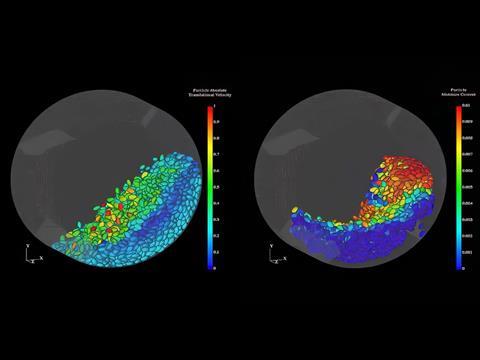
Mars has announced a new collaboration with engineering software company Ansys to adopt simulation software aiming to reimagine the packaging innovation process through digital technology.
Mars, the maker of brand names including M&Ms, Royal Canin and Snickers, is set to leverage the new simulation approach to perform virtual testing and prototyping on new packaging innovation, initially across its snacking portfolio.
The multi-physics simulation technology reportedly minimises the need for extensive physical testing during the packaging development process and provides in-depth insights into various aspects of the complex production phases, including wrapping, drop tests and failure scenarios.
With Ansys, Mars hopes to build on its aim and investments to achieve 100% reusable, recyclable or compostable packaging for its products.
Mars hopes that the implementation of simulation software is set to facilitate a digital-first development environment at the company from design to manufacturing, making the process easier and more efficient for the R&D team. Researchers at Mars have reported reductions in development time of up to 40% through computer modelling and in the quantity of plastic purchased by Mars for testing by approximately 246 tonnes.
The food and pet care provider has said that it is working to redesign more than 12,000 packaging types across its portfolio to fit with the recycling infrastructure that either exists today or is likely to exist in the future, making it easier for consumers to recycle their packaging.
In May 2023, Mars entered a partnership with Amcor, P&G, and Delterra to bring the latter’s upstream and downstream circular plastics solutions to scale in the Global South – an effort hoped to cut down on plastic pollution in the region. The partnership aims to invest in waste prevention programmes across the value chain, including the global rollout of Plastic IQ, Deltarra’s digital tool designed to help companies understand and improve their plastic footprint – enabling them to design waste out of the system and tackle upstream waste.
At the end of last year, Mars published its Net Zero Roadmap, an open-source action plan documenting its plans to have carbon emissions across its value chain by 2030, invest $1 billion in driving climate action and more. The roadmap responds to the Intergovernmental Panel on Climate Change (IPCC)’s recent findings, backed by the United Nations, that drastic action must be taken “now or never” in order to avoid “disaster”.
If you liked this story, you might also enjoy:
The Brief: How viable is biorecycling for plastics?
Report: How the top brands are progressing on packaging sustainability
The Brief: Using ocean-bound plastic in packaging – how, why and should we?














No comments yet